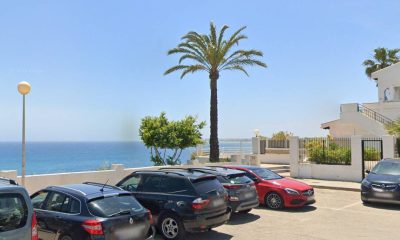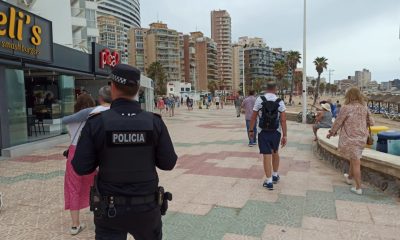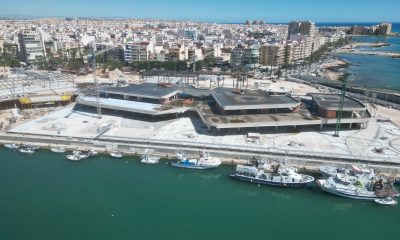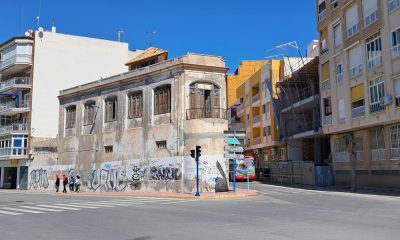Costa Blanca
Torrevieja Council is trying to restrict the terraces along the promenade
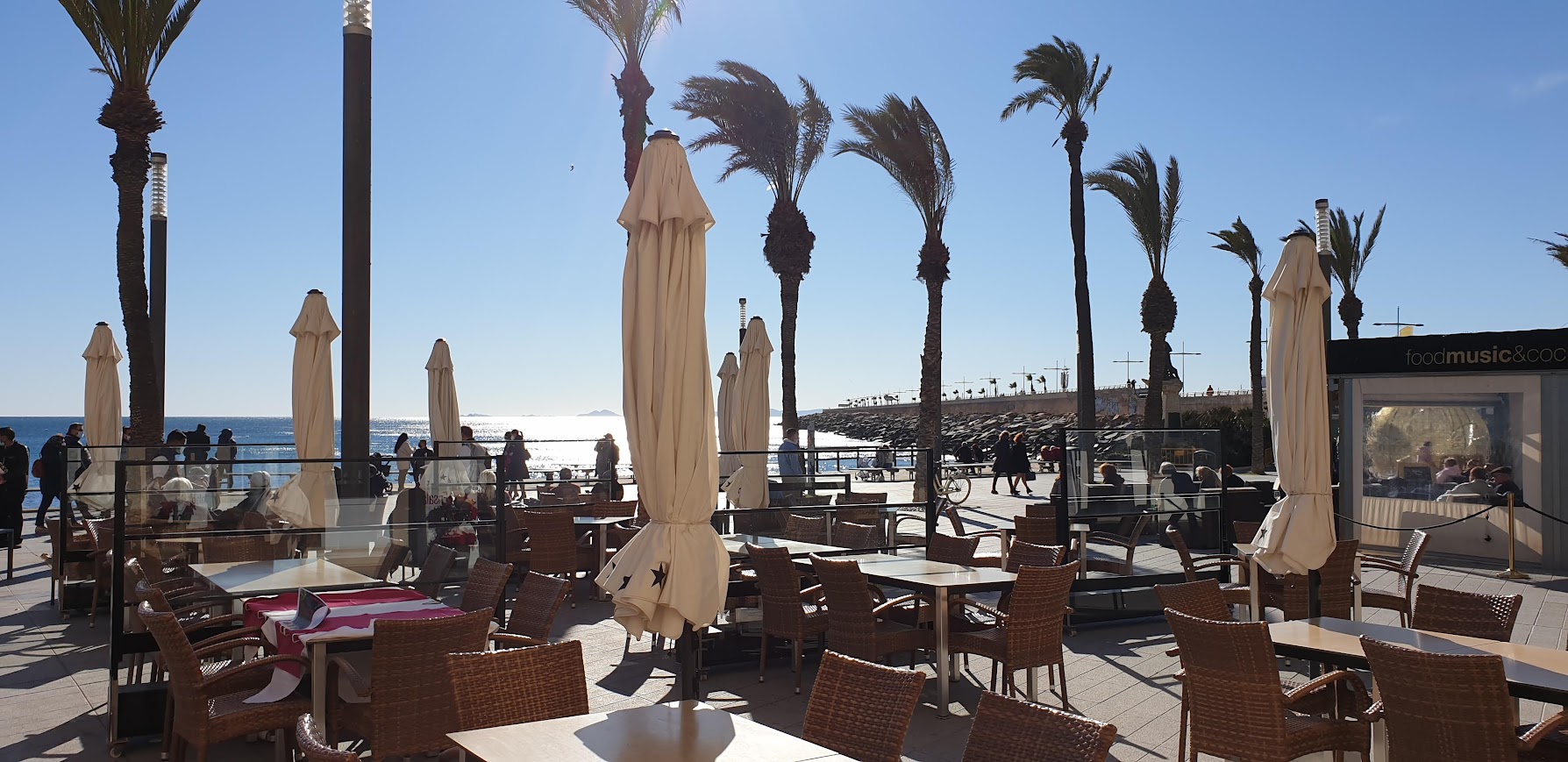
This Monday, the Torrevieja City Council initiated an initiative to reduce the occupancy of public spaces on Paseo de Juan Aparicio by restaurant terraces.
The local hospitality industry’s golden mile’s numerous terraces had been violating the ordinance for years by occupying more space than their permits permitted, as evidenced by the use of a few litres of yellow paint, chalk, masking tape, and the labour of municipal employees. In comparison to others, some had implemented numerous square meters of public space into their operations.
Federico Alarcón, Councillor for Safety and Occupation of Public Spacessaid that the City Council would verify compliance on-site after reinstating the payment of the fee for occupation of public spaces, without evaluating whether restaurateurs were complying with the ordinance.
That is to say, the amount that hospitality businesses have been paying since the tax was reinstated in response to the pandemic has been adjusted to reflect the actual space they occupy on a daily basis and the square meters defined by the municipal ordinance for that specific area.
Torrevieja was one of the tourism municipalities that maintained its tax exemption for the longest period following the pandemic. There are four complete years between 2020 and 2023. During this period, local regulations were also exceptionally adaptable, as businesses demanded benefits in the face of extremely adverse circumstances and installed an increased number of chairs and tables, which were protected by health and safety regulations.
Torrevieja City Council has also established a reputation for being one of the most permissive in terms of permitting the occupation of public space, with a preference for the profitable use of hospitality businesses.
The municipality alone generates 1.4 million euros annually from the occupancy of public spaces by terraces, excluding street markets and other taxable activities in public spaces.
“Faced with the need to return to the pre-pandemic line or create an intermediate one, we have decided to return to the previous one,” according to Alarcón. The last time an occupancy limit line was ordered to be drawn, leaving tables that exceeded it visible and readily distinguishable on the ground, was over seven years ago, during the coalition government (2015-2019), when Javier Manzanares was the councillor for the area.
The promenade’s pavement, which is also referred to as Las Rocas, had already begun to discolour after an extended period of time. The PP municipal government discontinued the signage of the COVID measures that were implemented in 2020 to guarantee that the hospitality industry could continue to operate with specific health precautions.
Upon the return of normalcy following the pandemic, residents residing on the front lines had identified the absence of control over the occupation of public space by hospitality businesses. Terraces encircled benches along the promenade, and establishments relocated their tables and chairs just over three meters from the seafront. The permissiveness of the municipality extends to the incorporation of permanent installations, which are provided with designated spaces on the canopies, palm trees, verdant areas, and streetlights on the promenade.
This situation has resulted in significant traffic congestion at pedestrian crossings over the past two summers, as the terraces were required to accommodate unlicensed street vendors, known as the “top manta.”
Yesterday, Monday 17th March, the Municipal Public Road Occupation Department commenced the process of removing chairs and tables from the majority of the hospitality establishments along Juan Aparicio Promenade. Signs have been posted by municipal labourers and the Local Police officer who is responsible for enforcing the ordinance. These signs will be posted from the Hombre del Mar area and will extend along the promenade to Punta Margalla, including those situated on Playa del Cura.
Councilman Alarcón clarified that the Association of Hospitality and Regional Businesses, with which he maintains a close relationship, had been warned and had informed its members. The group’s board of directors has not responded to this newspaper’s attempts to contact them.
Nevertheless, the employees of the establishments were evidently perplexed, as they were required to remove a significant portion of their terraces after the installation. Additionally, they were uncertain about how to dispose of the remaining furnishings. The issue has been temporarily resolved by the rain, which has decreased the number of individuals who can fit in the fixed installations on the terraces that are already covered.
The Libertad promenade, which is one of the main promenades, has been closed to the public since March 12th as a result of the renovation of the port and the removal of vendor stalls, which is also a result of the municipal initiative. The pedestrian area has been further restricted and will be redirected to the Juan Aparicio seafront promenade in anticipation of Holy Week.
Conversely, the City Council has temporarily suspended the finalisation of the new occupancy ordinance due to its extensive nature, which encompassed a wide range of uses, including the amusement park, bohemian craft market, and terraces. Alarcón observed that the current proposal is to divide the text into distinct ordinances to ensure that they are tailored to the specific use.
The City Council’s intention to implement an external software application to facilitate the payment process for the use of public roads has also been impeded. The municipality contemplated transferring the territory to Suma Gestión Tributaria after promoting the project. However, the autonomous body of the Provincial Council is uncertain about certain aspects of this delegation of functions, and the municipality has temporarily suspended this initiative. The councillor also expressed his optimism that the planned reinforcement of Local Police officers will enable the addition of additional officers to the inspection of public roads throughout the year.
Discover more from Costa Blanca Daily
Subscribe to get the latest posts sent to your email.
Costa Blanca
Torrevieja fails to comply with its commitment to open new road at La Hoya for Easter
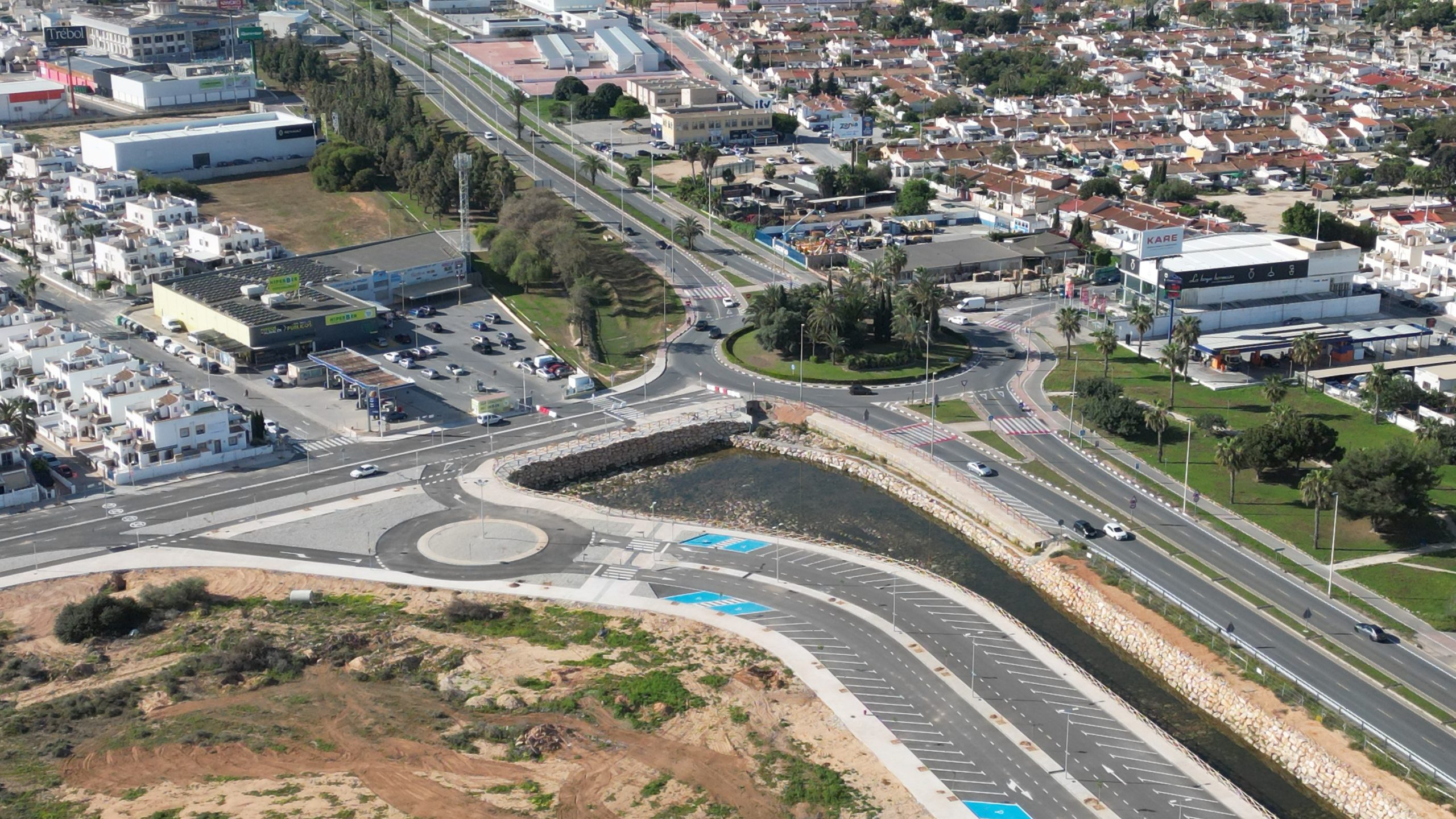
Eduardo Dolón (PP), the mayor of Torrevieja, announced at the beginning of April that the new Avenida José Carreras in the La Hoya residential area would be open to alleviate some of the traffic flow between the main access and exit road to the city, the CV-905, and the northern part of the town this Easter. However, the mayor’s announcement remains unfulfilled.
In his press conference last Thursday, April 17th , the Councillor for Traffic and Safety, Federico Alarcón, did not provide any explanation regarding the matter. Neither did the government team, even on Instagram, which is typically one of their primary communication channels.
This Easter Sunday, the road is still closed to traffic.
On April 3rd, Dolón responded to media enquiries by stating that municipal technicians and representatives of the developer had conducted numerous meetings to facilitate the opening of the four-lane avenue to traffic, with two lanes in each direction.
Given the significant tourist influx during Easter and the congested CV-95, the opening of this road was considered appropriate. By doing so, it would alleviate the traffic congestion.
The mayor clarified that the City Council must certify the first phase of the development being constructed, while a provisional acceptance of that section of road will be conducted.
Through the administrative process of reception, technicians verify that the works executed by a developer within an urban development plan that has been authorised by the municipality are in accordance with the project’s investment and on-site characteristics.
Víctor Costa, the Director General of Urban Planning at Torrevieja City Council, is currently responsible for validating receipts. It is crucial to consider the administrative process, as it is exceedingly challenging to hold the developer accountable in the event that the City Council identifies deficiencies subsequent to receipt.
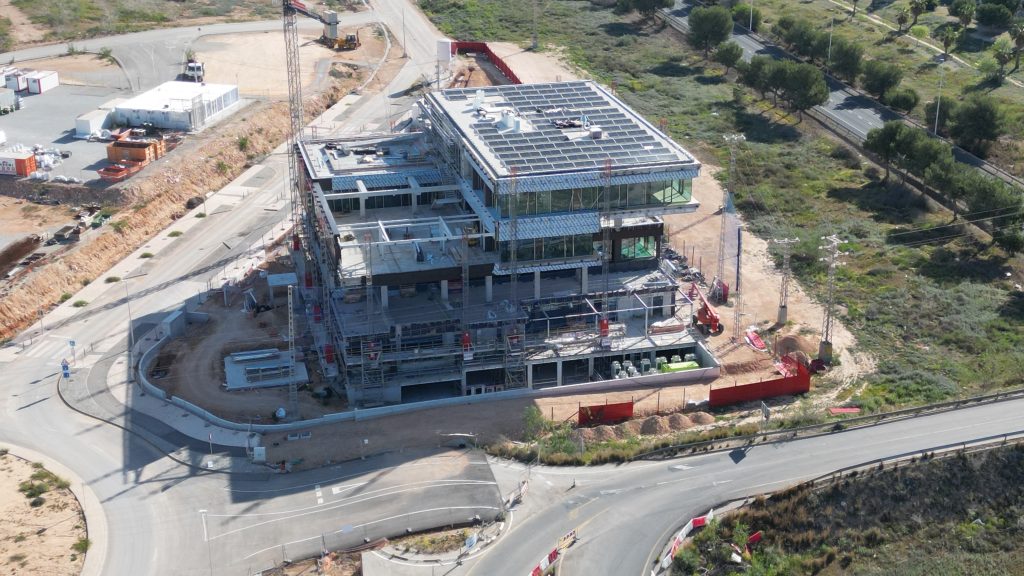
The avenue is more comprehensive than those implemented in other developments in the area in terms of furniture, signage, safety, pedestrian conditions, and accessibility; it spans over one kilometre and the end of the new road, near the N332 (above) doesn’t look fit for traffic as there appears to be a steep incline making it impossible for the likes of buses to naviagate.
The connection between the CV-905 and the northeast area of the Torrevieja municipality has been closed for just over a year. This closure was due to the construction of the macro-urban development project, which will build 7,500 new residential homes in the sector starting in October 2023. The road, which is commonly referred to as the “swiggly road,” is used daily by hundreds of drivers to traverse the city centre.
This year, the Traffic Department has devised an alternative route that traverses numerous residential areas.
Discover more from Costa Blanca Daily
Subscribe to get the latest posts sent to your email.
Costa Blanca
Walkway from Aguamarina to La Caleta in Cabo Roig will reopen, again
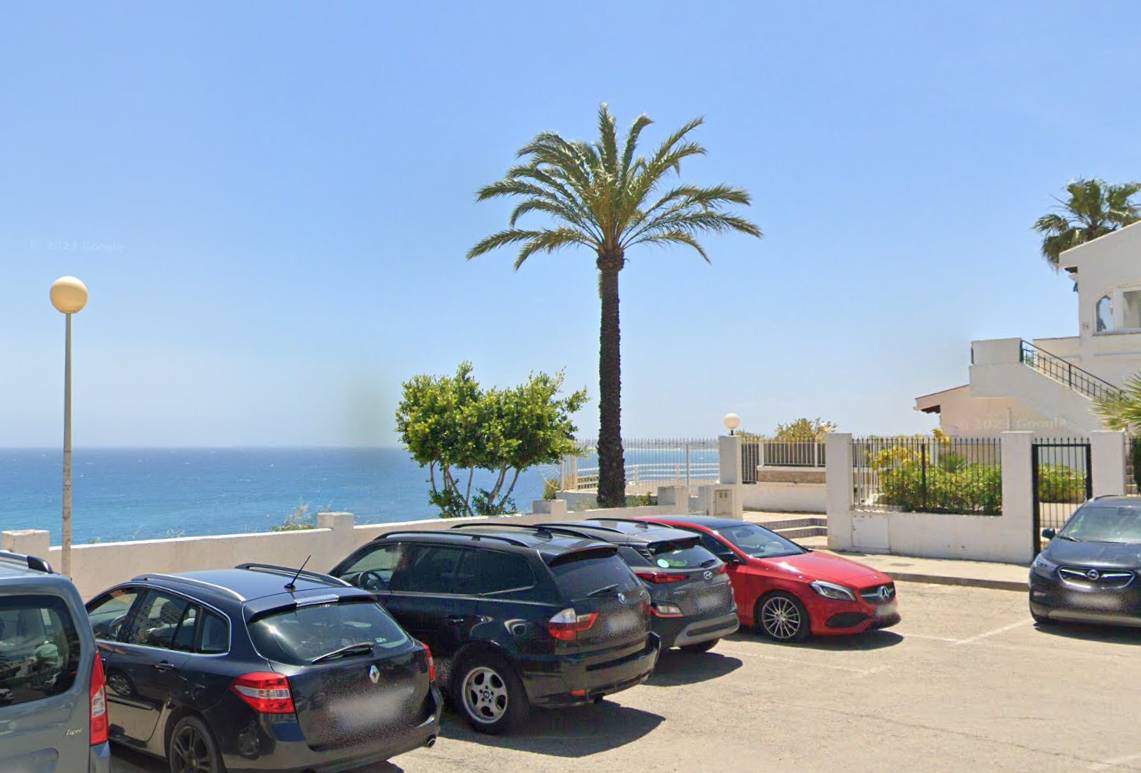
According to the notification from the Provincial Expropriation Jury to the Orihuela City Council following its approval of the court’s appraisal report, the municipal coffers will incur a cost of 26,180 euros for the expropriation of the land to reopen the pedestrian crossing connecting Aguamarina with La Caleta in Cabo Roig, near the Bellavista development.
The City Council has now requested that the Treasury deposit the specified amount in the receptacle and proceed with the preoccupation of reopening the promenade this summer.
Unable to reach an agreement, the local government and the proprietors brought the process before the provincial jury. Almost 17 times the municipal technicians’ calculation (€69,113), the proprietors presented a valuation of €1.2 million for their 227-square-metre cliffside plots in January of last year.
Nevertheless, this proposition was a decrease from the 3 million euros that they had initially requested. The 52 residents of the residential complex have established a price of approximately 170,000 euros for the 142 square meters of land that is to be expropriated, which is a decrease from the previous price of 2 million euros. Conversely, Cabo Roig SA has requested 987,000 euros (previously 1 million euros) for 85 square meters of hotel use. The City Council’s initial assessment was 44,000 euros.
The jury ultimately found that the City Council had to pay just over €26,000. The 2024 budget allocated €600,000 for the expropriation of the land and the necessary works to reinstate an idyllic pedestrian promenade along the Orihuela coastline. This should be kept in mind. This promenade has been accessible to the public for many years, but it has been closed since December 2021. The City Council closed it in accordance with a court judgement, which necessitated a two-kilometre diversion for residents and numerous visitors to circumvent a section that was only 60 metres in length.
The residential development was authorised prior to the Coastal Law and the General Urban Development Plan (PGOU) of 1990, which mandated that the initial line be used for public purposes. Nevertheless, the City Council refrained from expropriating this section, which ensured the promenade’s continuity along the entire littoral. In 2013, the residents of the development constructed a wall to seal off the path that runs along the precipice and is adjacent to the gardens of their residences.
In 2013, the local government, at the request of the socialist Antonio Zapata, the councillor for urban planning at the time, initiated the process of restoring urban planning legality against the development. The process involved the installation of a barrier and a wall, which impeded traffic on the section.
In March 2015, City Hall employees employed sledgehammers to breach the gate and wall, thereby allowing the public access to the trail, with the support of the Supreme Court of Justice (TSJ). In 2016, the Elche Administrative Court ruled in favour of the residents of the development, annulling the rulings and directing City Hall to restore the cliff walkway at the Bellavista I residential complex, which was never considered public property.
Although the local government has been appealing its enforcement, the ruling became final when the City Council, which was then governed by the People’s Party (PP), did not appeal. The Provincial Coastal Service reported in May 2017 that a right of way impacted the land in Aguamarina. Consequently, the 52 residents of the residential complex were unable to close the passageway and were required to maintain it undisturbed.
The City Council filed an appeal against the October 4th, 2018, order, which ordered the fencing and restitution of the demolished wall. The TSJ overturned the appeal in a November 2020 ruling, stating that the wall was legally constructed by the residents prior to the implementation of the current Coastal Law, which is the foundation of the Provincial Coastal Service’s right of way discussion. The City Council assumed the report and was subsequently obligated to execute the 2016 ruling, which mandates the reconstruction of the demolished perimeter fence and annuls the 2013 agreement of the Governing Board and the 2015 demolition decree.
Therefore, in December 2021, it was once again closed to adhere to the ruling, which mandated that the City Council restore it to its original condition.
Discover more from Costa Blanca Daily
Subscribe to get the latest posts sent to your email.
Costa Blanca
Crackdown on illegal sales in Calpe
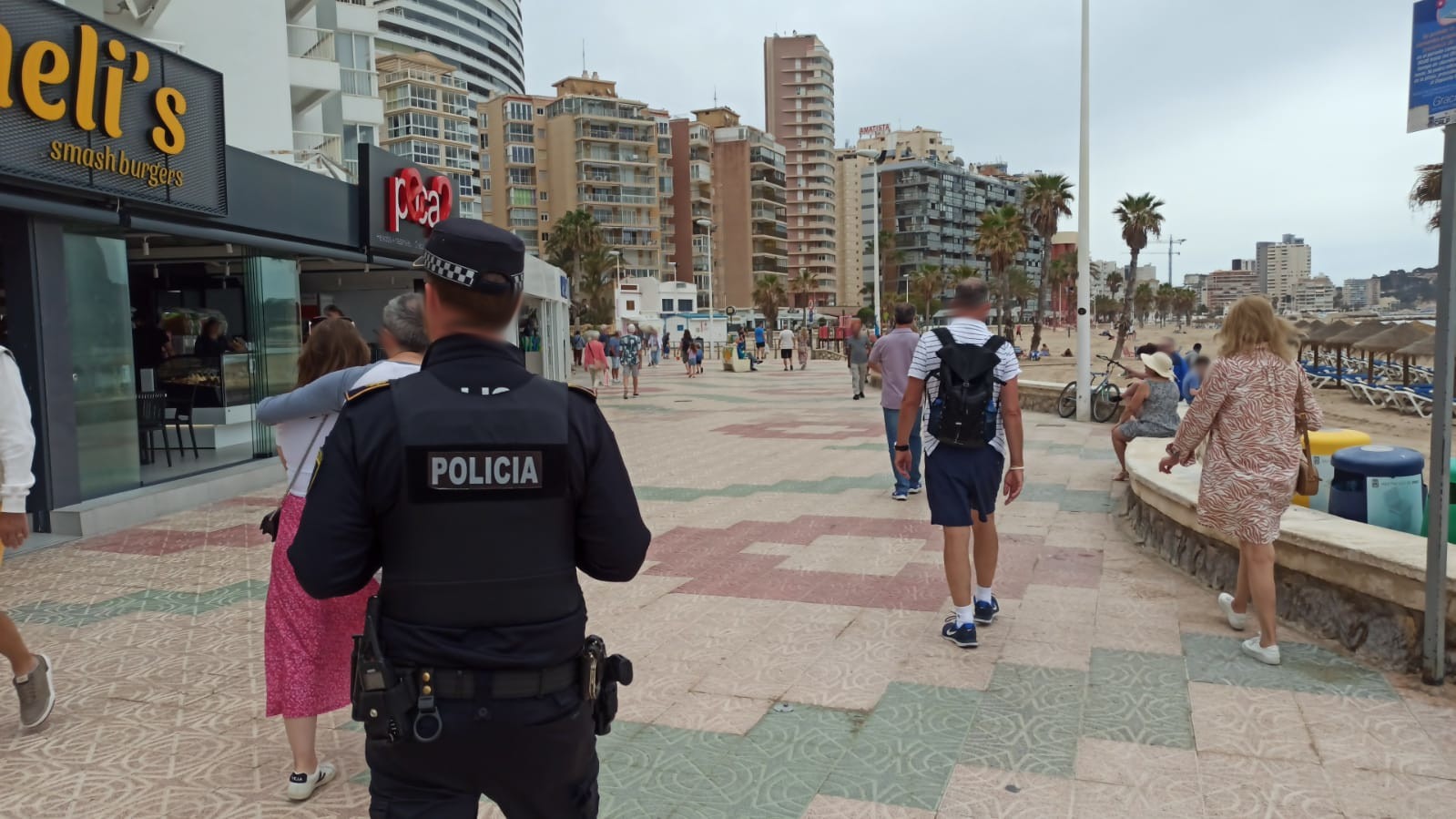
As part of a campaign against street vending that will be further bolstered in the spring and summer of 2025, the Guardia Civil and Local Police have deployed over 25 officers and a drone to the beaches of Levante and Poniente.
A police operation was conducted a few days ago to combat the illicit sale and counterfeiting of products by plainclothes and uniformed officers from the Guardia Civil and the Calpe Local Police. The prevention and deterrent campaign against illicit street vending will persist throughout the spring and summer of 2025, and this action is a component of it.
The Guardia Civil officers from the Main Post and the specialised unit PAFIF (Tax and Border Patrol), which monitors borders and controls taxation in our country, as well as the UTAI and USC CALP units of the Calpe Local Police, were involved in the police operation, which was aided by a drone from the UMAC (Calpe Local Police Aerial Means Unit). This police operation, which was conducted on the Levante and Poniente beaches of Calpe, involved over 25 officers from both forces.
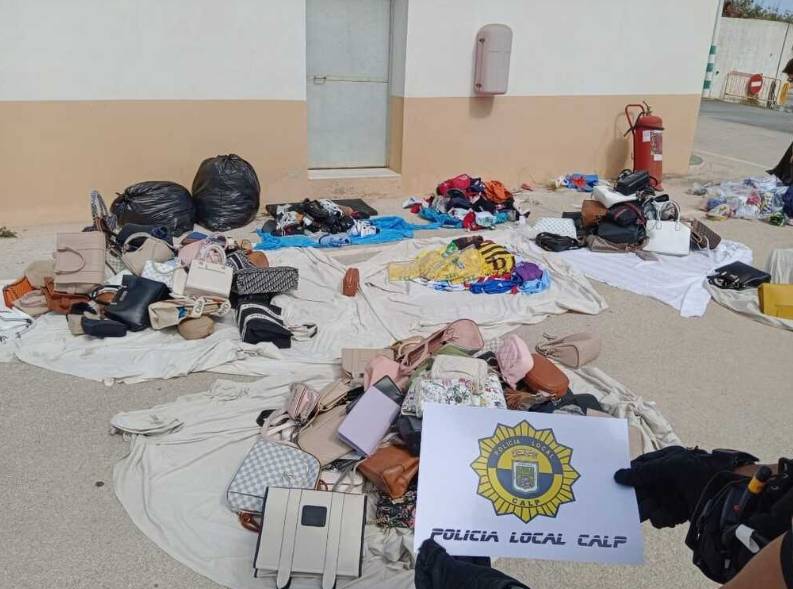
In the course of the operation, 180 leather products, 212 T-shirts, 38 swimsuits, 12 caps and 291 pairs of trainers were confiscated, in addition to five vehicles that were purportedly used as warehouses. The prospective market value of all counterfeit items, which includes the value of the immobilised vehicles and the seized materials, is €15,000. The competent authorities were also informed of the sellers who were identified.
The Councillor for Citizen Security of the Calp City Council, Guillermo Sendra Guardiola, conveyed his satisfaction with the positive relationship and spirit of collaboration and cooperation between the Guardia Civil and the Local Police. “The councillor underscored that the fact that both forces are collaborating, despite their differences in resources and efforts, results in heightened safety for Calpe residents and visitors.”
The local government’s dedication to law enforcement is complemented by its efforts to increase community awareness of the risks and repercussions of supporting this unlawful trade, as the municipal ordinance prohibits both the street sale and purchase of these products.
Discover more from Costa Blanca Daily
Subscribe to get the latest posts sent to your email.
-
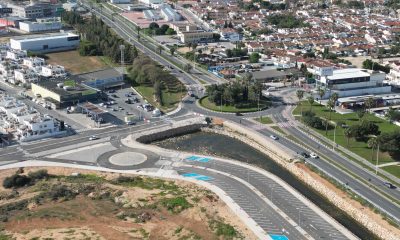
 Costa Blanca23 hours ago
Costa Blanca23 hours agoTorrevieja fails to comply with its commitment to open new road at La Hoya for Easter
-
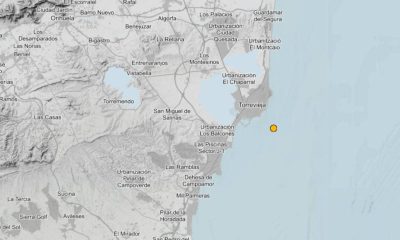
 Costa Blanca6 days ago
Costa Blanca6 days agoTorrevieja records a 2.8 magnitude earthquake
-
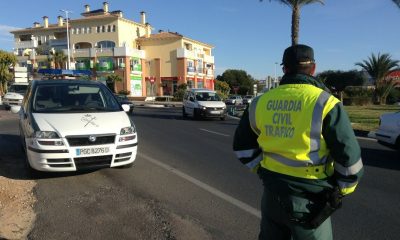
 Costa Blanca2 weeks ago
Costa Blanca2 weeks agoThis week the DGT will issue over 64,000 speeding tickets
-

 Costa Blanca2 weeks ago
Costa Blanca2 weeks agoSix arrested for the use of AI to defraud over 19 million euros
-

 Costa Blanca1 week ago
Costa Blanca1 week agoSpanish family killed in helicopter crash in New York
-

 Costa Blanca2 weeks ago
Costa Blanca2 weeks agoBeware if you receive an orange envelope in your postbox
-

 Costa Blanca2 weeks ago
Costa Blanca2 weeks agoWhy aren’t salaries in Spain rising while everything else is?
-

 Costa Blanca2 weeks ago
Costa Blanca2 weeks agoPolice are investigating a shooting in Alicante

